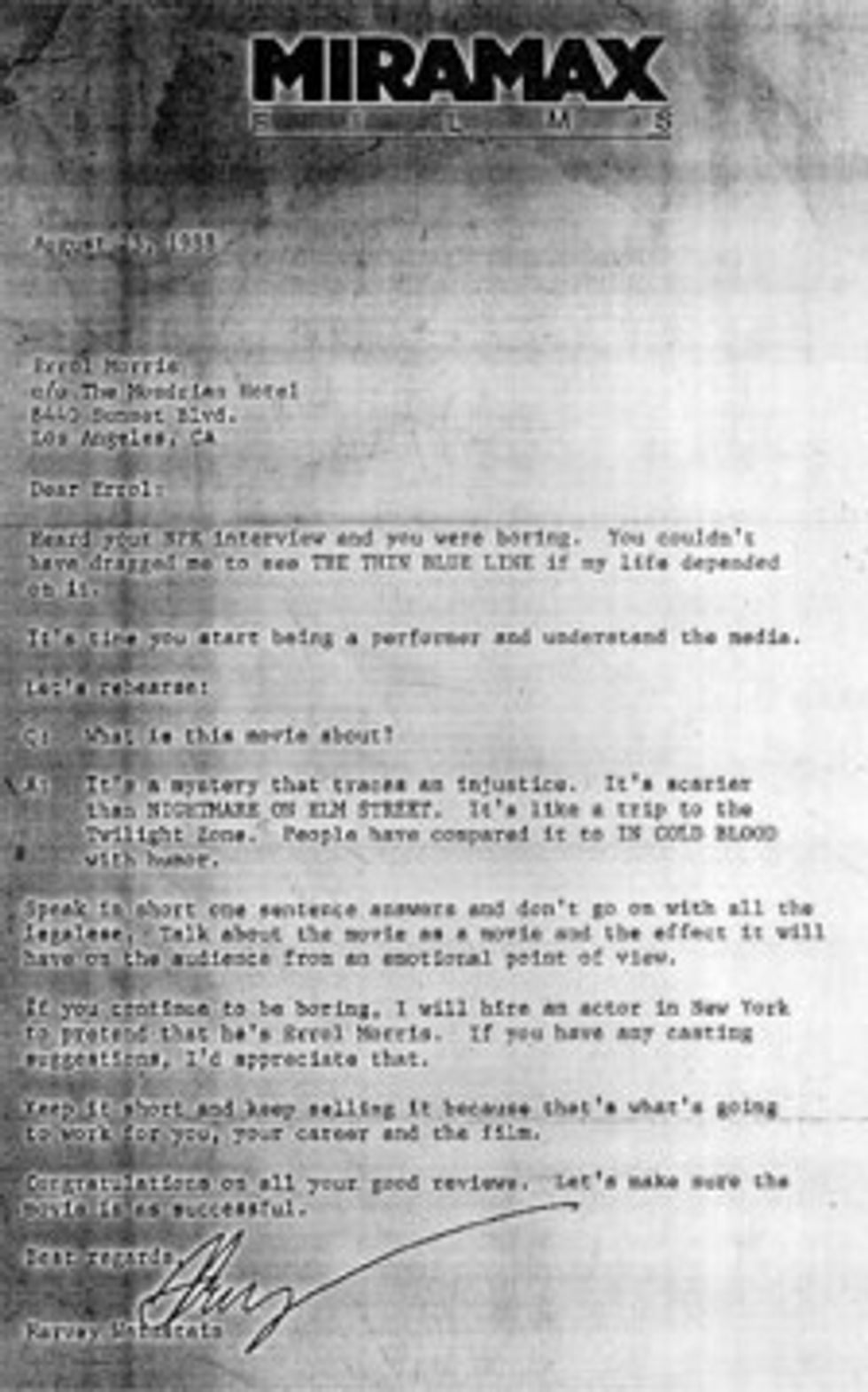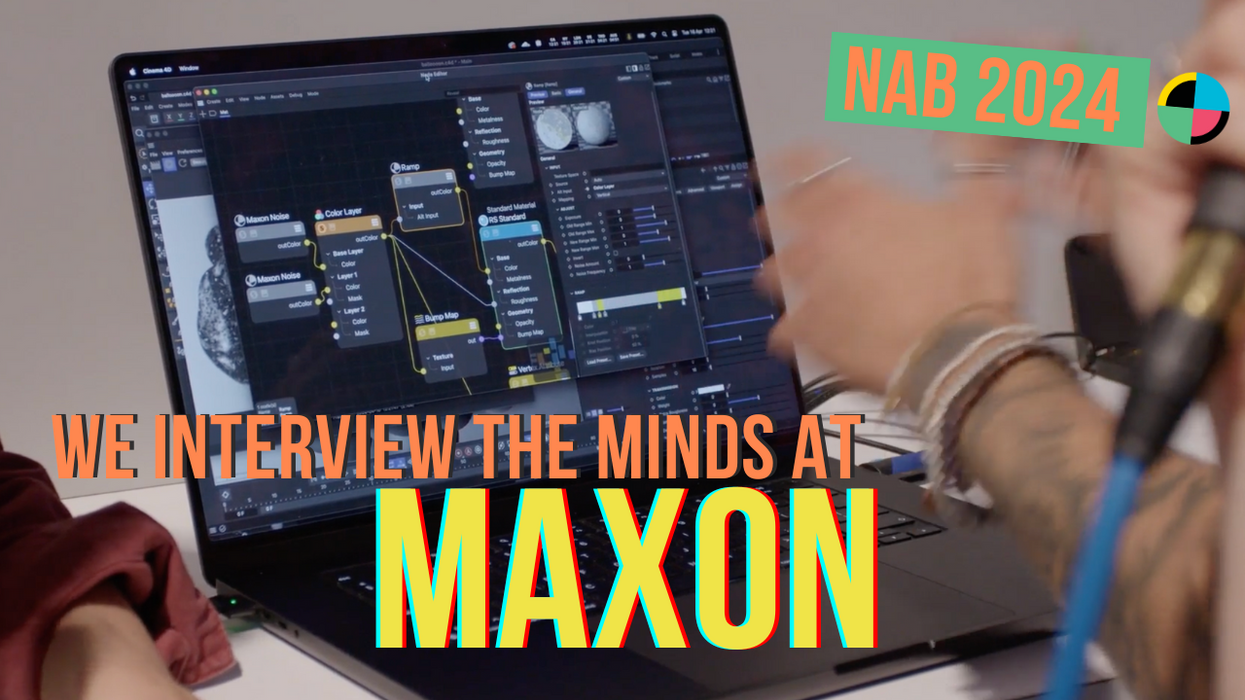Harvey Weinstein on Promoting Movies: 'Start Being a Performer and Understand the Media'

In case you can't quite make out the words (picture courtesy of Letters of Note):
Dear Errol:
Heard your NPR interview and you were boring. You couldn't have dragged me to watch THE THIN BLUE LINE if my life depended on it.
It's time you start being a performer and understand the media.
Let's rehearse:
Q: What is this movie about?
A: It's a mystery that traces an injustice. It's scarier than NIGHTMARE ON ELM STREET. It's like a trip to the Twilight Zone. People have compared it to IN COLD BLOOD with humor.
Speak in short one sentence answers and don't go on with all the legalese. Talk about the movie as a movie and the effect it will have on the audience from an emotional point of view.
If you continue to be boring, I will hire an actor in New York to pretend that he's Errol Morris. If you have any casting suggestions, I'd appreciate that.
Keep it short and keep selling it, because that's what's going to work for you, your career and the film.
Congratulations on all your good reviews. Let's make sure the movie is as successful.
Best regards,
Harvey Weinstein.
If you haven't watched The Thin Blue Line, you need to drop what you're doing and watch it as soon as possible! Having said that, if you have watched it, you might find something kind of hokey about comparing it to A Nightmare on Elm Street, perhaps even distasteful. But that's the difference between filmmaking and pitching; art and commerce.
Now, I don't know if I would ever be comfortable making that kind of direct reduction (and I doubt Morris ever went as far as that), but I think the heart of the message holds true, and it's one I can get behind:
Talk about the movie as a movie and the effect it will have on the audience from an emotional point of view.
This is especially important for documentary filmmakers, who having spent years with the issues explored in their documentary, may forget to describe the film in favor of discussing the issue -- but that's what the movie is for! When promoting the film, you'll have to describe why folks would want to watch the documentary, as opposed to reading a cut and dry article that summarizes the issue. Part of learning how to convey the emotional effect forces us to become performers and requires that we understand how that message can be best transmitted in the media.
It's interesting to hear the original NPR interview referred to and a subsequent interview Morris did with NPR a couple of weeks after the memo -- check them out here. Although significant portions of both interviews deal with the subject of the film, I think there is a subtle shift in how Morris approaches the subject matter in the second interview. He does a much better job of describing the experience of the movie (i.e the sense of waking up in a Twilight episode) and he makes more of an effort to paint a given scene (i.e when the officer was shot) rather than simply providing the information. It's not a night and day difference, but one can perceive the shift, and I would argue that the second interview feels more compelling and interesting.
What's great and daunting about being an indie filmmaker today is that there are so many ways in which we can convey the emotional feel of our films -- not just interviews and trailers, but transmedia projects, blogs, shorts, etc.
Can you think of other ways Weinstein's advice could be applied by today's filmmakers? Share below!
Link: Was Errol Morris Really That Boring? Listen For Yourself And Decide -- NPR
[via filmzu & Letters of Note]












